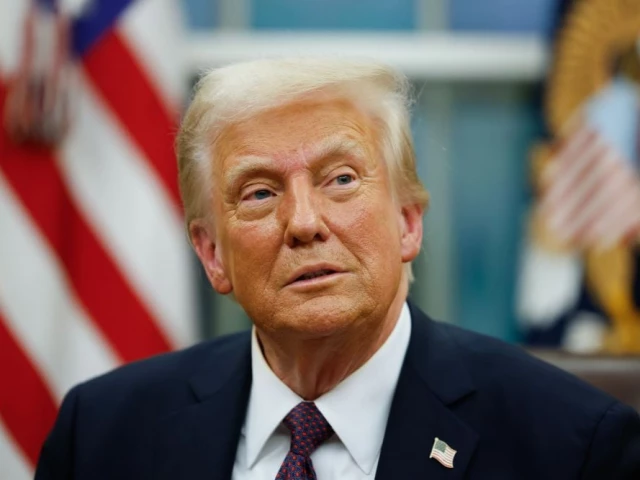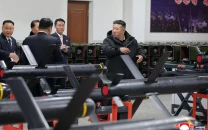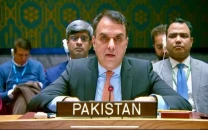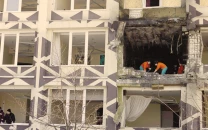Trump hints at progress on Iran deal, says ‘very close’
Tehran appears open to limits on enrichment if sanctions relief is guaranteed.

President Donald Trump said on Thursday the United States is close to reaching a nuclear agreement with Iran, signalling a potential breakthrough in long-running efforts to defuse tensions over Tehran’s atomic programme.
“We're in very serious negotiations with Iran for long-term peace,” Trump said during his visit to Doha, Qatar, as part of a tour of Gulf nations. Speaking to reporters, he suggested that Iran had “sort of” agreed to the terms being discussed.
“We're getting close to maybe doing a deal without having to do this... There is a very, very nice step, and there is the violent step. But I don't want to do it the second way,” Trump said, without elaborating on what either scenario might entail.
An Iranian official familiar with the negotiations said that while progress has been made, significant gaps remain between the two sides.
Oil prices fell by about $2 on Thursday amid growing speculation that a potential deal could lead to the easing of US sanctions on Iranian crude exports, which have been heavily restricted in recent years.
Recent talks in Oman between Iranian and US officials concluded on Sunday, with both sides agreeing to continue discussions. Despite some shared goals, key sticking points persist, particularly around uranium enrichment levels and the pace of sanctions relief.
Iranian President Masoud Pezeshkian reacted sharply to Trump’s remarks earlier in the week, calling Iran “the most destructive force” in the Middle East. He accused Washington of hypocrisy, saying: “Trump thinks he can sanction and threaten us, and then talk of human rights.”
In an interview with NBC News on Wednesday, Ali Shamkhani, an adviser to Supreme Leader Ayatollah Ali Khamenei, said Iran was willing to commit to never producing nuclear weapons and to significantly scale down its enriched uranium stockpiles. He also said Iran would permit international inspectors to verify compliance.
Shamkhani added that Iran could limit uranium enrichment to levels appropriate for civilian use, such as power generation. However, Tehran insisted that any agreement must allow enrichment on Iranian soil, a point that Washington views as a major obstacle.
Iran has also proposed that the removal of its enriched uranium stockpiles be done in stages, a condition the United States has so far resisted. There is also no consensus on where the material would be sent.
Tehran said it would not accept limits lower than those outlined in the 2015 Joint Comprehensive Plan of Action (JCPOA)—the deal from which Trump unilaterally withdrew in 2018.
Iranian officials argue that while they are offering substantial concessions, the US has not shown readiness to lift what Tehran sees as “major” economic sanctions, which have crippled the country’s economy.
Earlier, on Tuesday Iran said a recent round of talks with the US had been fruitful but the imposition by Washington of further sanctions was not compatible with the negotiations.
The US on Tuesday imposed sanctions on a shipping network it says has sent millions of barrels of Iranian oil to China, the State Department said, two days after Washington and Tehran held a fourth round of talks in Oman on Iran’s nuclear programme.
“The talks were useful” Iranian foreign ministry spokesperson Esmaeil Baghaei told local media.
“In recent days they [the US] issued sanctions on Iran, this is completely incompatible with the process of negotiations… This will affect our positions”, Baghaei said on the sidelines of a book fair.























COMMENTS
Comments are moderated and generally will be posted if they are on-topic and not abusive.
For more information, please see our Comments FAQ